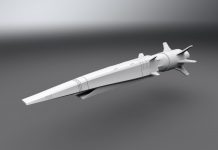
France has affirmed its full commitment to achieving a “mutually acceptable solution” with Germany and Spain this year regarding the next phase of the Future Combat Air System (FCAS), as the next-generation fighter project faces challenges amid disputes among industrial partners.
The French Ministry of Armed Forces stated in an email on Saturday that France, Germany, Spain, and the associated companies are “fully mobilized” to advance phase two of the program, which includes creating a demonstrator aircraft central to the system.
Earlier this year, France requested that Germany and Spain revise their FCAS collaboration to emphasize “strengthening industrial leadership” to meet the target of deploying a new fighter from 2040 onward. Dassault Aviation, the French partner responsible for the fighter segment, has repeatedly warned that disagreements with Airbus over work distribution are causing delays.
The ministry emphasized that “France and Germany remain determined to successfully carry out the FCAS program in cooperation with Spain” and that it is “fully committed, alongside its German and Spanish counterparts, to reaching a mutually acceptable solution by the end of the year.”
Reports indicate Dassault Aviation has sought a larger share of certain program elements, with CEO Eric Trappier noting that, together with French partners Safran and Thales, the company possesses all the capabilities to independently develop the aircraft.
Spanish Prime Minister Pedro Sánchez stated at a press conference with German Chancellor Friedrich Merz on Thursday that the original work-share agreements should be upheld. Merz added that negotiations among the three nations are ongoing, remarking, “we cannot continue as things are at present.”
The current FCAS challenges mirror those faced during a joint European fighter program in the 1980s, when France eventually pursued its own path due to disagreements over design authority and operational requirements. This led to Dassault developing the Rafale, while Germany, the U.K., Italy, and Spain collaborated on the Eurofighter Typhoon.
After completing the initial stage with contracts to develop critical technologies, the FCAS consortium is “mobilized for a decision at the end of 2025,” according to the French Ministry of Armed Forces.
Earlier this month, Germany’s defense ministry held talks with Airbus about FCAS, reportedly considering closer cooperation with Sweden or the U.K., or working directly with Spain, according to Politico sources.
Meanwhile, the U.K. is partnering with Italy and Japan on the Global Combat Air Programme for a next-generation fighter, while Sweden is pursuing its own future air-combat system.
These programs, including U.S. initiatives, generally follow a “system of systems” approach: a crewed sixth-generation fighter at the center, accompanied by unmanned wingman drones and remote carriers, with AI assisting in reducing pilot workload and accelerating decision-making, all integrated through a combat cloud network.





